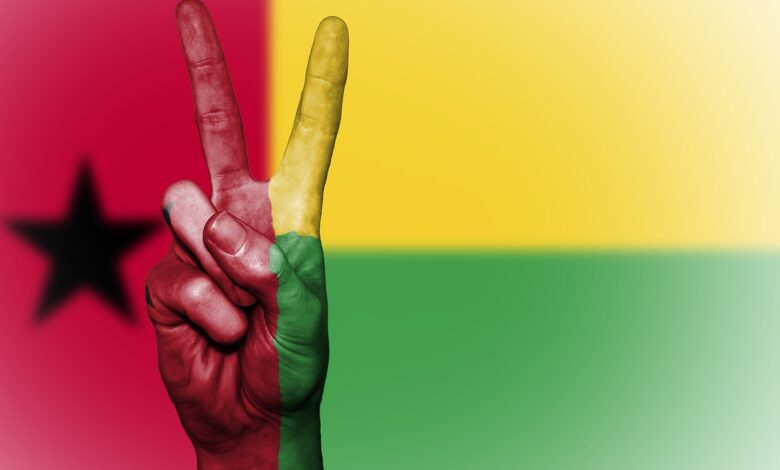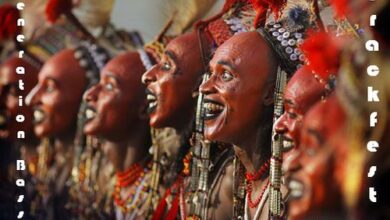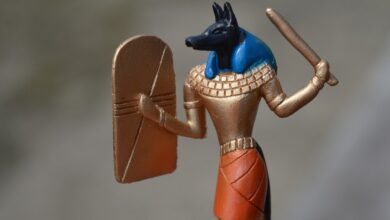Guinea-Bissau Facts, History, Culture & Travel – Africa Facts Zone
A Country of Complex History and Vibrant Culture

Guinea-Bissau, one of Africa’s smallest and least-known countries, has a rich cultural heritage and complex history.
Located on the western coast of Africa, this nation has faced numerous challenges, from colonial rule to political instability, yet it remains resilient and culturally vibrant.
In this article, we’ll delve into Guinea-Bissau’s history, geography, culture, and economy to offer a comprehensive understanding of this unique West African country.
Historical Overview: From the Mali Empire to Independence
The Pre-Colonial Period
Before the arrival of Europeans, the region now known as Guinea-Bissau was part of several powerful West African empires, including the Mali Empire.
The area was a hub of trade, with goods such as gold, ivory, and slaves being exchanged with other African regions and beyond.
The local people, predominantly the Balanta, Papel, and Manjaco ethnic groups, had well-established societies with complex social structures.
Portuguese Colonization
In the 15th century, Portuguese explorers arrived on the coast of Guinea-Bissau, establishing a presence that would last for over 500 years.
The Portuguese engaged in the transatlantic slave trade, using Guinea-Bissau as a key point in the trade route. The colony, known as Portuguese Guinea, was one of the last to gain independence in Africa.
The struggle for independence was led by the African Party for the Independence of Guinea and Cape Verde (PAIGC) under the leadership of Amílcar Cabral.
After a prolonged war, Guinea-Bissau declared independence from Portugal in 1973, which Portugal recognized in 1974 following the Carnation Revolution.
Also Read: Exploring Equatorial Guinea Facts, History, Culture & Travel – Africa Facts Zone
Post-Independence Struggles
The years following independence were marked by political instability, including coups, assassinations, and civil unrest. Despite these challenges, the country has maintained a unique cultural identity and continues to work towards stability and development.
Geography: A Coastal Nation with Diverse Ecosystems
Location and Terrain
Guinea-Bissau is located in West Africa, bordered by Senegal to the north, Guinea to the east and south, and the Atlantic Ocean to the west.
The country covers an area of approximately 36,125 square kilometres (13,948 square miles), making it one of the smallest countries in mainland Africa.
The terrain is predominantly low-lying, with mangrove swamps, rivers, and archipelagos along the coast, while inland areas are characterized by savannahs and forests.
The Bijagós Archipelago
One of the most remarkable features of Guinea-Bissau is the Bijagós Archipelago, a group of islands off the coast that is recognized as a UNESCO Biosphere Reserve.
The archipelago is known for its rich biodiversity, including rare species of marine turtles, hippos, and birds. The islands are also home to the Bijagó people, who have preserved their traditional way of life and maintain a deep connection with nature.
Climate
Guinea-Bissau has a tropical climate, with a rainy season from June to November and a dry season from December to May. The coastal regions are humid, while the interior experiences a slightly drier climate.
Cultural Heritage: A Blend of Traditions and Modernity
Ethnic Groups and Languages
Guinea-Bissau is a multicultural society with more than 20 ethnic groups. The largest groups are the Balanta, Fula, Manjaco, and Mandinka.
Each ethnic group has its own language, customs, and traditions, contributing to the country’s rich cultural tapestry. Portuguese is the official language, but Crioulo, a Portuguese-based Creole language, is widely spoken and serves as a lingua franca.
Festivals and Rituals
Guinea-Bissau is known for its vibrant festivals and cultural rituals. The Carnival of Bissau is one of the country’s most famous events, celebrated with colorful parades, music, and dance.
Traditional ceremonies, such as the initiation rites of the Balanta people, play a significant role in Guinea-Bissau’s cultural life, preserving ancient practices and beliefs.
Religion
Islam is the predominant religion in Guinea-Bissau, practiced by about 50% of the population. It is followed by Christianity and traditional African religions. The country is known for its religious tolerance, with different faiths coexisting peacefully.
Art and Music
Art and music are integral to Guinea-Bissau’s cultural identity. The country has a rich tradition of oral storytelling, and music plays a central role in social and religious events.
Gumbe, a genre of music that blends African rhythms with Portuguese influences, is particularly popular. Traditional crafts, such as weaving and pottery, are also important aspects of cultural expression.
Economic Challenges and Opportunities
Agriculture and Fishing
Agriculture is the backbone of Guinea-Bissau’s economy, employing the majority of the population. The country is one of the world’s leading producers of cashew nuts, which are the primary export.
Other important crops include rice, peanuts, and palm oil. Fishing is also a vital part of the economy, with the rich coastal waters providing a significant source of income and food.
Also Read: Exploring Eritrea Facts, History, Culture & Travel – Africa Facts Zone
Natural Resources
Guinea-Bissau is believed to have significant untapped natural resources, including bauxite, phosphates, and offshore oil reserves.
However, political instability and lack of infrastructure have hindered the development of these resources. The government has been working to attract foreign investment and improve the regulatory framework to capitalize on these potential economic opportunities.
Challenges to Development
Despite its natural wealth, Guinea-Bissau faces significant challenges, including poverty, political instability, and corruption.
The country’s infrastructure is underdeveloped, with limited access to electricity, clean water, and healthcare. However, efforts are being made to improve governance, attract investment, and promote sustainable development.
Conclusion
Guinea-Bissau is a country of great cultural richness and economic potential despite its challenges. Its history of resilience and its vibrant traditions make it a unique and fascinating part of West Africa.
As Guinea-Bissau continues to navigate its path towards stability and development, it remains a testament to the enduring spirit of its people.
Frequently Asked Questions (FAQs)
1. What is the significance of the Bijagós Archipelago?
The Bijagós Archipelago is a UNESCO Biosphere Reserve known for its rich biodiversity and the traditional way of life of the Bijagó people.
2. When did Guinea-Bissau gain independence from Portugal?
Guinea-Bissau declared independence from Portugal on September 24, 1973, and this was officially recognized by Portugal in 1974.
3. What are the main languages spoken in Guinea-Bissau?
Portuguese is the official language, but Crioulo is widely spoken, along with several indigenous languages.
4. What role does agriculture play in Guinea-Bissau’s economy?
Agriculture is the primary sector of Guinea-Bissau’s economy, with cashew nuts being the most important export product.
5. How is Guinea-Bissau addressing its economic challenges?
The government is working to attract foreign investment, improve infrastructure, and promote sustainable development to address economic challenges.
6. What is the cultural significance of music in Guinea-Bissau?
Music is central to social and religious events in Guinea-Bissau, with genres like Gumbe reflecting a blend of African and Portuguese influences.
7. How does Guinea-Bissau’s climate vary across the country?
Guinea-Bissau has a tropical climate with a rainy season from June to November and a dry season from December to May. Coastal regions are humid, while the interior is drier.





